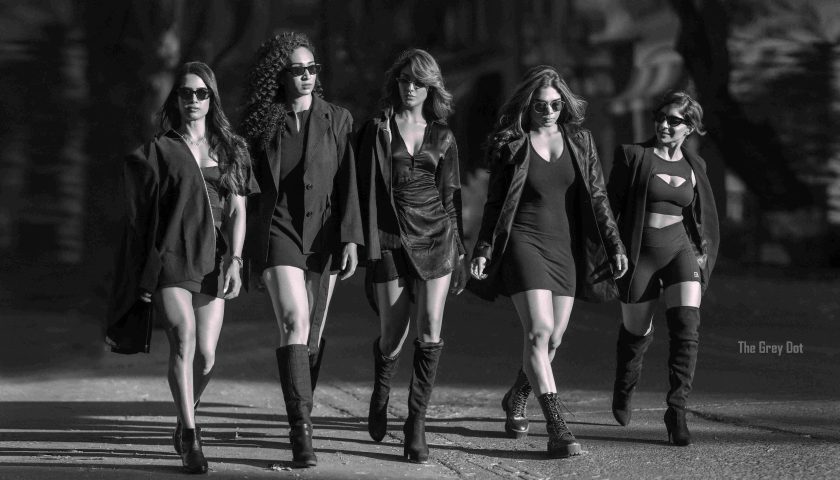God. Kashim Shettima, who is a senator and immediate past governor of Borno state, is taking a barrage of bullets not from the terrorists plaguing his state but from critics in the political space. Shettima appeared as one of the guests of note at the 62nd Nigerian Bar Association (NBA) conference last week wearing a suit and sneakers. In and out of conference circles there was an uproar about this unorthodox way of dressing. A suit is a formal garment, often worn with lace-up leather shoes and socks. Since then, Shettima has been covered by columnists and social media activists. They have gone beyond dressing up to berate him for failing to rescue the girls of Chibok Government College from kidnappers when he was governor of the state. Shettima, who has been a banker for many years, always dressed in smart suits and ties, says he has adopted this avant-garde style of dress for a reason. He said he had sent a team to find out what kind of reception he would get at the conference. He said that “he found out that one of the presidential candidates had been holding meetings for three days to plan mischief. So he knew he was going to face a hostile situation at the conference and therefore purposely wore sneakers to dampen them.” He further said, “I am a banker trained by one of the best bankers in the world. I’m a son of Jim Ovia.”
The hidden meaning of what he has said is that he knew, as all bankers do, how to dress well in crisp suits and fancy shoes. In other words, he is a fashionable man who knows the etiquette of dressing well.
Shettima graduated from the University of Maiduguri with a bachelor’s degree in Agricultural Economics and a master’s degree in the same subject from the University of Ibadan. He has worked with several banks including Nigerian Agricultural Cooperative Bank, Commercial Bank of Africa Limited and African International Bank. He ended his banking career at Zenith, where he rose to the position of general manager. In 2007, he left the bank when he was appointed commissioner of finance and economic development in the government of Governor Ali Modu Sheriff in Borno State. He later became the governor of the state, a position he held with courage and dedication.
Shettima may not be aware that what she is wearing, a suit and sneakers, is gradually becoming a trend among the youth, especially those in the entertainment world. Over time, it may become a trend that is acceptable to more people. But of course dress etiquette is largely determined by one’s age and position in society. That is why, even if the trend continues, it will still be unorthodox and unacceptable for older people who occupy a higher social position in life to adopt it as a formal dress. By this definition, Shettima is exempt from wearing such avant-garde clothing at a major public event, even if she wanted to humiliate those who expected to mock her. The outfit humiliates him, not the hostile crowd he thought was lying in wait.
Let’s face it. The world is experiencing a fashion revolution. People now wear ripped or torn or patched jeans and no one makes fun of them saying they can’t buy new clothes. These cloths are actually made that way and they are not cheap. In fact, the more ragged it is, the more expensive it becomes. Some men even wear hoop earrings or chandelier earrings, wear long pointed nails. Some of them even paint them in different colors. The hair is either fried or braided or dyed different colors. Women wear micro mini skirts that are either so short that they tend to expose what should be hidden or simply leave very little to the imagination. At the other end of the fashion spectrum are women who wear very long skirts that sweep the floor as they go. I witnessed a scene where a beautiful looking lady wearing a very long dress marched while entering a ceremony hall and fell on her head. People had to take it. That was the end of the party for him. I wonder what difference it would make to the length of a dress if it didn’t have to sweep the floor. Those who think they are smart use one hand to lift the dress, depriving themselves of the availability of that hand for a more useful purpose. Does fashion need to deprive people of common sense in terms of functionality? But it is clear that those fashionistas and creators of these new trends think they can make the world copy them and make unorthodox clothing and designs look orthodox.
However, I’m sure Shettima knows that his unusual attire is not the main reason why he gets shafted. The main reason is that he is in politics and as a candidate for the vice-president of the KHP, he is the target of poisoned arrows from the opposition. Politics is like a kitchen. Although it is a place where delicious food is cooked, a kitchen also has the smell of onion. There are two main reasons why this period is not a perfect postcard period for Shettima. One is that he made the adjectival mistake of positioning himself against the elite who are campaigning for the restructuring of the country. Not only did he oppose the restructuring, he did so in a very combative way saying “restructuring my leg”. This was over the top. Restructuring has both supporters and opponents and it is the responsibility of those on both sides of the divide to make their positions clear, concise, factual without offending the sensibilities of those on the opposite side. In the first place, it is close to anti-party activity for those in the APC to oppose the restructuring, which their party had sought confirmation of its desire by the people of Nigeria. This was done through the Nasir El-Rufai Committee, which sampled the opinion of Nigerians in all geopolitical zones. Nigerians confirmed that they wanted restructuring, including the state police and devolution of powers to state governments. Those who are against restructuring have not been able to make Nigeria a viable country; they have not made it a safe place to live, to travel safely to and from the nearest country by road or rail without fear of kidnapping or murder. Nigeria is close to being a failed state and anyone who says this is the quality of life we deserve with all the great manpower and mineral resources we have is living in a fool’s paradise. Of course, Nigeria can do better, much better, than this. Almost all the good things we thought we would get from our beloved country when we gained independence in 1960 have now become specks on a distant horizon. When Shettima uttered the words “restructuring my leg,” he should have known without saying that such an arrogant statement was out of step with the mood and murmurs of the moment. Any party that does not favor a restructuring of the country does not deserve the votes of well meaning Nigerians who know that the country is capable of being better, much better than it is now. Nigeria as it is today has gone through a period of retention. We have been paralyzed, rather than galvanized, by the unitary government we have had since the military took over in 1966.
The second reason why there has been apparent animosity towards Shettima is because of his appointment as vice president to Asiwaju Bola Tinubu. Tinubu is a Muslim from the South while Shettima is also a Muslim from the North. The argument of those seeking the appointment of a Christian from the north was to ensure an appropriate religious balance. Therefore, when he was appointed, highly qualified as he is, Shettima received only a muted applause. This is mainly because the country has changed drastically. When Chief Moshood Abiola, a Muslim from the South, elected Mr. Babagana Kingibe, a Muslim from the North, in 1993, there was only very mild opposition. The people of Nigeria knew that neither of the two men were religious fanatics and were unlikely to lead Nigeria to a religious impasse. That was why Nigerians voted for them. It is clear that Tinubu is not a religious irredentist. He is married to a woman who is a pastor in a Pentecostal church. In the Southwest, there are many such intermarriages between Muslims and Christians and they live in harmony. I have often said that the South West remains the most refined and broadest region in Nigeria in matters of religion. That is why you don’t find that Boko Haram is able to recruit children from the southwest as kamikaze. It is not that there is no poverty in the Southwest, an excuse people use to explain the ease with which youths are recruited by Boko Haram terrorists in the North into terrorism. There is poverty everywhere in Nigeria, but my explanation for why the Southwest is relatively free from terrorist recruitment is education. The free education that Obafemi Awolowo pioneered in the South West, continued by subsequent governments, has had a liberating effect across the region.
The reason some people are against the Muslim-Muslim ticket has nothing to do with either Tinubu or Shettima. It is about the way our politicians have treated religion in words and deeds since the beginning of this Republic. We have heard politicians say that Boko Haram terrorists should be given the kind of amnesty program that was given to Niger Delta militants. We have heard them say at campaign rallies that Muslims should only vote for Muslim candidates. They have played a very dangerous game even in appointing people to high posts in the armed forces, police and paramilitary forces. When you go down the line, bypassing a number of competent people because they are not of your faith, you create a situation of doubt and disharmony. My gut feeling is that one of the reasons, among others, why the fight against terrorism, banditry, etc., is not yielding the right positive results is that some of the personnel who feel marginalized may have decided to take a “siddon” position look”. I could be wrong, but that’s my gut feeling.
I have nothing against the Muslim-Muslim candidacy of the APC, although I think we should blame our politicians for elevating religion in the public space in a way that tends to poison the relationship between Nigerians. At Newswatch, we didn’t include a space for our staff’s religion because we didn’t want to run an organization that was biased towards faith. We just wanted our staff to do their job well and be rewarded for it.
In deciding who to vote for in the next election, religion will not be a factor for me. What will matter to me will be my assessment of whether or not the candidate will be able to solve Nigeria’s problems. This assessment will be based on how the candidate answers it question, how?




